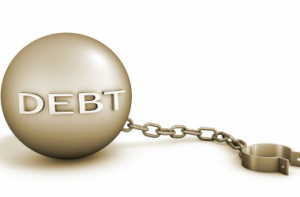After years of being in debt, Rachel Kramer Bussel came to a realization: “If I don’t become proactive about it, I will be in debt for the rest of my life.” For Bussel, a freelance writer near Atlantic City, New Jersey, that meant scaling back spending and putting any available money toward the debt principal.
“Starting to see it go in the right direction helped me amp it up,” she says. “I felt like, maybe there is light at the end of the tunnel.” Bussel, whose debt came from credit cards, student loans and back taxes, finally paid off all of her debt, which at one point exceeded $100,000, in 2020.
Paying off debt is a common goal as the new year kicks off. Bills for holiday shopping and other end-of-year spending often come due in January, and this year, rising interest rates make debt increasingly expensive. According to the Federal Reserve, revolving debt, which includes credit card balances, continued to rise throughout 2022, increasing at an annual rate of 10.4% as of October, the most recent numbers available.
In Kimberly Palmer’s latest for the Associated Press, learn strategies to attack your debt in January.
 Today’s top story: 6 credit card scams and how to avoid them. Also in the news: A new episode of the SmartMoney podcast on COVID impulse spending and building credit while paying off debt, how Black Friday shopping could look very different this year, and making a plan to repay your borrowed 401(k) money.
Today’s top story: 6 credit card scams and how to avoid them. Also in the news: A new episode of the SmartMoney podcast on COVID impulse spending and building credit while paying off debt, how Black Friday shopping could look very different this year, and making a plan to repay your borrowed 401(k) money. Today’s top story: SmartMoney podcast on how to pay off debt faster. Also in the news: What to expect when requesting a credit limit increase, why you should always pay in local currency when traveling, and 10 money mistakes millennials should avoid.
Today’s top story: SmartMoney podcast on how to pay off debt faster. Also in the news: What to expect when requesting a credit limit increase, why you should always pay in local currency when traveling, and 10 money mistakes millennials should avoid. People are angry. Voters demanding change have helped make Donald Trump the presumptive Republican nominee for president and fueled Bernie Sanders’ ferocious challenge to Democrat Hillary Clinton.
People are angry. Voters demanding change have helped make Donald Trump the presumptive Republican nominee for president and fueled Bernie Sanders’ ferocious challenge to Democrat Hillary Clinton. If you think the answer is simple, you may not understand the question.
If you think the answer is simple, you may not understand the question.